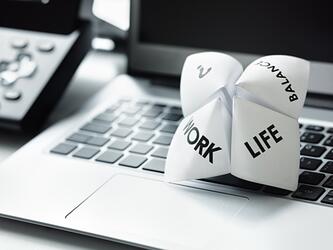Fostering wellbeing at work: ‘You don’t leave your baggage at the door’
Speaking at Impact 2020, Dane Krembergar, head of workplace wellbeing services at Mind, said the charity’s work with university students has highlighted what new entrants expect of the workforce.
“One of the things we find is that young people are expecting more support from employers when they enter the workplace.” However, what that support looks like varies from person to person. “Organisations can’t just apply a blanket one-size-fits-all approach,” he added.
Rebecca Ormond, workplace leader at PwC, agreed. She said: “There is an expectation from younger talent – we’ve heard clearly from younger employees they want more from us. There’s an expectation from leadership about how they respond and engage with issues.”
Mental health is becoming a bigger topic of conversation for the industry, but research from Opinium found that 85% of respondents working in market research agreed they had struggled with their wellbeing in the past year.
Sophie Holland, senior research executive at Opinium, speaking on the panel, said: “One of the big things that came out from the survey was workload – particularly agency side – managing workload became one of the top reasons people don’t take time off work as they’ve got too much to do.”
Market research can be a solitary industry and combined with pressure from clients can lead to stressful situations, said Jenni Roberton, managing director of Respondi. “It can be a relatively solitary space in terms of writing proposals late at night, building presentation decks, etc. Also, there is so much pressure in terms of cheaper, faster, better and clients wanting things within 24 or 48 hours – pressure ends up coming from everywhere.”
PwC has conducted research on healthy team working, finding that there are nuances in the causes of stress. “Long hours alone doesn’t automatically lead to stress, it is the nature of those long hours,” said Ormond. However, she added: “How much control do you have over it? Lots of us feel that we’re in a project and we’re flying and it’s rewarding, but it’s within our control to stop it. The challenge is when that control is taken away. When you’ve got a team working together that can feel very different to someone working in isolation – people checking in makes an enormous difference.”
Ormond stressed leadership is essential for good workplace wellbeing, adding that leaders should be held to account for supporting wellbeing in their teams.
With various initiatives being rolled out within organisations, more data on what works is also key, the panel said. “Traditional KPIs are things like sickness absence levels and retention, but increasingly we think people should be asked questions such as is your mental health better or not since six months ago?” said Krambergar. “It’s a much bigger, broader picture – you can’t just take data points in isolation.”
It’s also important to recognise people are individuals, said Holland: “It’s the human approach people want. You don’t just leave your baggage at the door when you go to work, there’s things you take with you.”
Sharing her final thoughts on what organisations can do to improve wellbeing, Holland added: “Listen to people and don’t just take the easy approach. Flexible working is hard to introduce logistically, for example, but the benefits on people’s lives are huge.”

We hope you enjoyed this article.
Research Live is published by MRS.
The Market Research Society (MRS) exists to promote and protect the research sector, showcasing how research delivers impact for businesses and government.
Members of MRS enjoy many benefits including tailoured policy guidance, discounts on training and conferences, and access to member-only content.
For example, there's an archive of winning case studies from over a decade of MRS Awards.
Find out more about the benefits of joining MRS here.













0 Comments